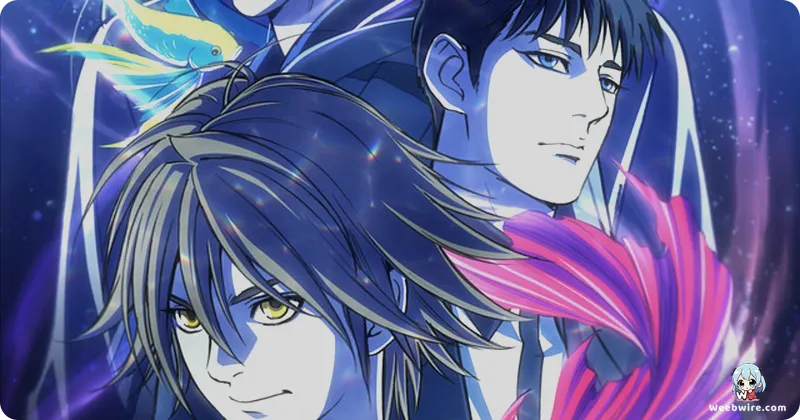Unveiling 'pet': Geno Studio's Chilling Dive into Memory Manipulation and the Human Psyche

In an anime landscape often dominated by epic clashes and fantastical realms, a groundbreaking series from 2020 dared to explore a far more intimate and unsettling frontier: the human mind and its most delicate faculty, memory. From the acclaimed Geno Studio, pet emerges not as a conventional action-thriller, but as a chillingly meticulous psychological drama. It stands as a compelling testament to anime's capacity for profound narrative depth. This hidden gem captivates viewers by plunging them into a world where certain individuals possess the terrifying power to manipulate, alter, or even erase the memories of others. It is a series that richly rewards those who crave nuanced storytelling and an intense dissection of the human psyche.
The Unsettling Power of 'Pets'
At the heart of pet lies its unique and unsettling power system. Known as 'Pets,' these individuals navigate the labyrinthine landscapes of the subconscious. They journey from the 'peak' of conscious thought to the 'valley' where traumatic experiences and core identities reside. This is not a simple act; it is a perilous mental journey fraught with danger. The risk applies not only to the victim but equally to the 'Pet' themselves, whose own sanity and sense of self are perpetually on the brink. A critical element of this power is its inherent instability. A 'Pet' can suffer catastrophic mental breakdown without the grounding presence of their emotional 'owner' or 'handler,' leading to devastating consequences for their very existence.
Geno Studio's Masterful Adaptation
Geno Studio, recognized for its masterful handling of intellectually stimulating and often dark narratives like Genocidal Organ and Golden Kamuy, undertook the ambitious task of adapting Ranjo Miyake’s revered cult-classic manga. The studio's expertise in portraying complex character psychology and gritty realism proved indispensable in translating pet's intricate web of deceit and emotional dependency to the screen. Visually, pet is striking, often employing surreal and distorted imagery to represent the mental realms explored by the 'Pets.' This abstract visual language serves as a powerful narrative device, immersing audiences in the disorienting reality of memory manipulation and amplifying the psychological horror without resorting to overt gore.
Themes of Identity and Dependency
The anime meticulously dissects the concept of profound emotional dependency that binds 'Pets' to their 'handlers.' This relationship, while appearing to offer stability, is inherently manipulative and frequently abusive. This bond forms the bedrock of the series' intense psychological drama. Characters such as Hiroki and Tsukasa perfectly illustrate this complex dynamic. Hiroki, a 'Pet' of immense power, is deeply reliant on Tsukasa, his 'owner,' for emotional equilibrium. Their relationship is a fragile, disturbing dance of control and vulnerability, laying bare the devastating impact of existing in a world where one's identity can be arbitrarily erased or rewritten.
The series brilliantly explores themes of identity, the nature of reality, trauma, and the very essence of human connection. It compels viewers to question what truly defines an individual when their past can be so easily altered. The 'Pet' concept transcends mere supernatural ability, serving as a potent metaphor for psychological enslavement and the profound loss of self that can occur through extreme dependency.
A Faithful and Unsettling Experience
Ranjo Miyake's original manga, serialized from 2003 to 2009 in Weekly Young Magazine, garnered a devoted following for its audacious premise and mature themes. It distinguished itself sharply from more conventional supernatural thrillers. The manga's distinctive art style, characterized by stark lines and unsettling expressions, seamlessly transitioned into animation, preserving the eerie, claustrophobic atmosphere central to the narrative. The anime’s deliberate pacing and consistently unsettling ambiance remain remarkably faithful to Miyake’s original vision, opting for a slow, agonizing burn that gradually unearths the world's dark secrets rather than relying on cheap thrills. This unwavering commitment to psychological depth is a hallmark of pet, solidifying its place as a standout in its genre for those who seek a narrative that truly infiltrates the mind and resonates long after viewing. It is a series that challenges its audience, inviting contemplation on the ethical ramifications of its unique power system and the profound fragility of human memory, making it an indispensable watch for anyone desiring a thought-provoking and emotionally resonant experience.
Credits
pet
Author
Ranjo Miyake
Cover Art
Ranjo Miyake
Studio
Geno Studio
Publisher
Kadokawa Shoten
Producers





